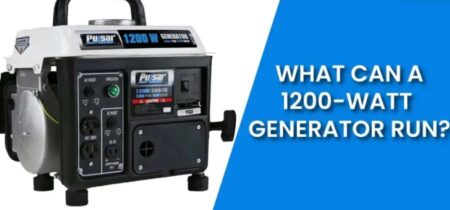
Hydrogen power generators are emerging as a promising alternative to conventional energy sources, offering a clean and sustainable way to meet our growing energy needs. As the most abundant element in the universe, hydrogen holds immense potential as a fuel source, producing only water as a byproduct when it is converted to electricity. This makes hydrogen power generators a highly attractive option for environmentally conscious individuals and businesses seeking to reduce their carbon footprint. In this blog post, we will explore how hydrogen generators work, discuss their advantages and disadvantages, and provide a comprehensive guide on how to run a hydrogen generator to power your house.
Can a Hydrogen Power Generator Power a House?
Yes, a hydrogen generator can power your house. The ability of a hydrogen generator to power a house depends on several factors, including the energy requirements of the household and the efficiency of the generator. On average, a typical American household consumes about 877 kWh per month or approximately 29 kWh per day. To meet these energy needs, a hydrogen generator must be capable of producing enough electricity consistently.
When compared to other power sources, hydrogen generators offer unique advantages and disadvantages. Solar panels, for example, have gained popularity in recent years as a clean and renewable energy source. However, their power generation is heavily dependent on sunlight, making them less reliable in areas with frequent cloud cover or during the night. Natural gas generators are another alternative, providing a consistent power supply but relying on a non-renewable fuel source and producing greenhouse gas emissions.
In contrast, hydrogen generators can produce power consistently, independent of weather conditions, and without producing harmful emissions. While the technology is still developing, advancements in hydrogen fuel cells and electrolyzers have led to increased efficiency and affordability, making it more viable for residential use. In the coming years, as the technology matures and hydrogen infrastructure expands, hydrogen power generators are expected to become an increasingly competitive option for powering homes.
Is there a Generator that Runs on Hydrogen?
Yes, some generators run on hydrogen, and they primarily utilize fuel cell technology to convert hydrogen into electricity. The two main types of hydrogen generators are Proton Exchange Membrane (PEM) fuel cells and Solid Oxide Fuel Cells (SOFC).
PEM fuel cells are the most common type, known for their low operating temperatures (around 60-90°C) and relatively quick start-up times. These characteristics make them particularly suitable for residential and small-scale applications. In PEM fuel cells, hydrogen is separated into protons and electrons, with the protons passing through a membrane and the electrons creating an electric current as they flow through an external circuit.
SOFCs, on the other hand, operate at much higher temperatures (around 700-1000°C) and have a longer start-up time. However, they boast higher efficiencies and can handle a broader range of fuel types, including natural gas and biofuels, in addition to hydrogen. In SOFCs, oxygen ions from the air pass through a solid electrolyte and combine with hydrogen to form water, releasing an electric current in the process.
Several companies offer commercially available hydrogen generators for residential use, with products ranging from small, portable units to larger, stationary systems that can be integrated with existing electrical infrastructure. As hydrogen technology continues to advance and economies of scale improve, the availability and affordability of hydrogen generators for residential use are expected to increase, making them an increasingly viable option for homeowners seeking a clean and sustainable energy source.
How Much Electricity Can 1 kg of Hydrogen Produce?
The energy content of hydrogen is one of its most appealing characteristics as a fuel source. One kilogram of hydrogen contains approximately 33.3 kWh of energy, making it a highly energy-dense fuel. However, the actual amount of electricity produced from 1 kg of hydrogen depends on the efficiency of the hydrogen generator being used.
Fuel cells, which are commonly used in hydrogen generators, typically have efficiencies ranging from 40% to 60%, depending on the type and specific design. This means that when converting hydrogen into electricity, only about 40% to 60% of the energy stored in the hydrogen is converted into usable electrical power. For example, if a fuel cell has an efficiency of 50%, 1 kg of hydrogen would produce roughly 16.65 kWh of electricity (33.3 kWh * 0.5).
Comparing hydrogen’s energy output to other fuel sources highlights its potential as a clean and efficient alternative. For instance, gasoline has an energy content of about 12.9 kWh per kg, but internal combustion engines commonly used in vehicles have efficiencies of only 20% to 30%. This means that hydrogen, when utilized in a fuel cell, can deliver more usable energy per kilogram of fuel than gasoline in an internal combustion engine.
As hydrogen technology continues to advance, efficiencies are expected to improve, further increasing the amount of electricity that can be generated from a given amount of hydrogen fuel. This makes hydrogen power generators an increasingly attractive option for clean and sustainable energy production.
How to Run a Hydrogen Power Generator to Power Your House?
To run a hydrogen generator to power your house, follow these steps:
1. Assess energy needs: Calculate your average daily and monthly electricity consumption using utility bills or a smart meter to determine the capacity of the hydrogen generator needed.
2. Select the right generator: Research efficiency, output capacity, and compatibility with your home’s electrical system, considering various models and manufacturers. Consult professionals if necessary to choose the most appropriate hydrogen generator for your specific situation.
3. Purchase the generator: Acquire the hydrogen generator from a reputable supplier and arrange for its delivery to your home.
4. Install the generator: Hire a qualified technician to properly integrate the hydrogen generator with your home’s electrical system, adhering to safety precautions and guidelines. This may involve connecting the generator to your existing electrical grid or setting up a standalone system with battery storage for a more resilient power supply.
5. Choose a hydrogen production method: Decide between on-site production through electrolysis, which is advantageous if you have access to renewable electricity, or purchasing hydrogen from a supplier.
6. Set up hydrogen storage: Store hydrogen as compressed gas in specially designed tanks, either on-site or off-site, depending on local regulations and available infrastructure.
7. Connect the generator to the hydrogen supply: Ensure that the hydrogen generator is properly connected to the hydrogen storage system or supply line, following the manufacturer’s instructions and safety guidelines.
8. Start the generator: Turn on the hydrogen generator, following the manufacturer’s instructions for the startup process. The generator will begin converting hydrogen into electricity, which can be used to power your home.
9. Monitor the system: Regularly inspect and maintain the hydrogen generator and storage system to ensure optimal performance and safety. This may include checking for leaks, monitoring hydrogen levels, and servicing the generator as needed.
By following these steps, you can harness the power of hydrogen to provide a clean and sustainable energy source for your home.
Advantages and Disadvantages of Using a Hydrogen Power Generator for Home
Pros
1. Environmental benefits: One of the primary advantages of using a hydrogen generator for home power is its environmental benefits. Hydrogen fuel cells emit only water vapor and heat, making them a zero-emission energy source. This can significantly reduce a household’s carbon footprint and contribute to the global effort to combat climate change.
2. Energy independence: Hydrogen generators can offer energy independence by reducing or eliminating reliance on grid electricity. This is particularly beneficial in areas prone to power outages or with unstable electricity supply. Furthermore, when combined with renewable energy sources like solar or wind, hydrogen can provide a clean and self-sufficient energy system.
3. Potential for cost savings: Over time, hydrogen generators can result in cost savings by reducing or eliminating electricity bills. As the technology matures and the price of hydrogen production and storage declines, these savings are expected to increase, making hydrogen an increasingly cost-effective energy solution.
Cons
1. Initial investment and costs: One of the main drawbacks of using a hydrogen generator for home power is the initial investment required. The cost of purchasing and installing a hydrogen generator, along with the necessary hydrogen production and storage infrastructure, can be significant. However, these costs are expected to decrease as technology advances and economies of scale improve.
2. Availability of hydrogen: Another challenge associated with hydrogen generators is the availability of hydrogen fuel. While hydrogen is the most abundant element in the universe, producing it in a usable form requires energy, and the infrastructure for distributing and storing hydrogen is still limited. This can make it challenging for homeowners to access hydrogen, particularly in remote areas. However, as the hydrogen economy continues to develop, the availability of hydrogen is expected to improve, making it more accessible for residential use.
Hydrogen Power Generator Conclusion
In conclusion, the future of hydrogen power in residential applications looks promising as the technology continues to advance and the infrastructure for hydrogen production, distribution, and storage expands. As the world increasingly seeks sustainable energy solutions, hydrogen power generators offer a clean, zero-emission alternative to traditional fossil fuel-based energy sources. The potential for cost savings, energy independence, and reduced carbon footprints makes hydrogen an attractive option for homeowners.
The International Energy Agency projects that hydrogen could account for almost 20% of global final energy consumption by 2050, highlighting its potential role in the global energy mix. As more governments and industries invest in the hydrogen economy, the accessibility and affordability of hydrogen power generators for residential use are expected to improve, making it easier for homeowners to adopt this sustainable energy solution.
Individuals and communities need to adopt sustainable energy solutions like hydrogen power to combat climate change, reduce pollution, and transition towards a more environmentally friendly and energy-efficient future. By embracing hydrogen power for residential applications, homeowners can contribute to this global shift and pave the way for a cleaner, more sustainable world.
Also Read:
How to Use a Generator During a Power Outage
What is a Small Portable Generator
How Much Does a Generac Solar Generator Cost
How to Use a Portable Generator
What type of Solar Power Generator for Home are best in 2023








